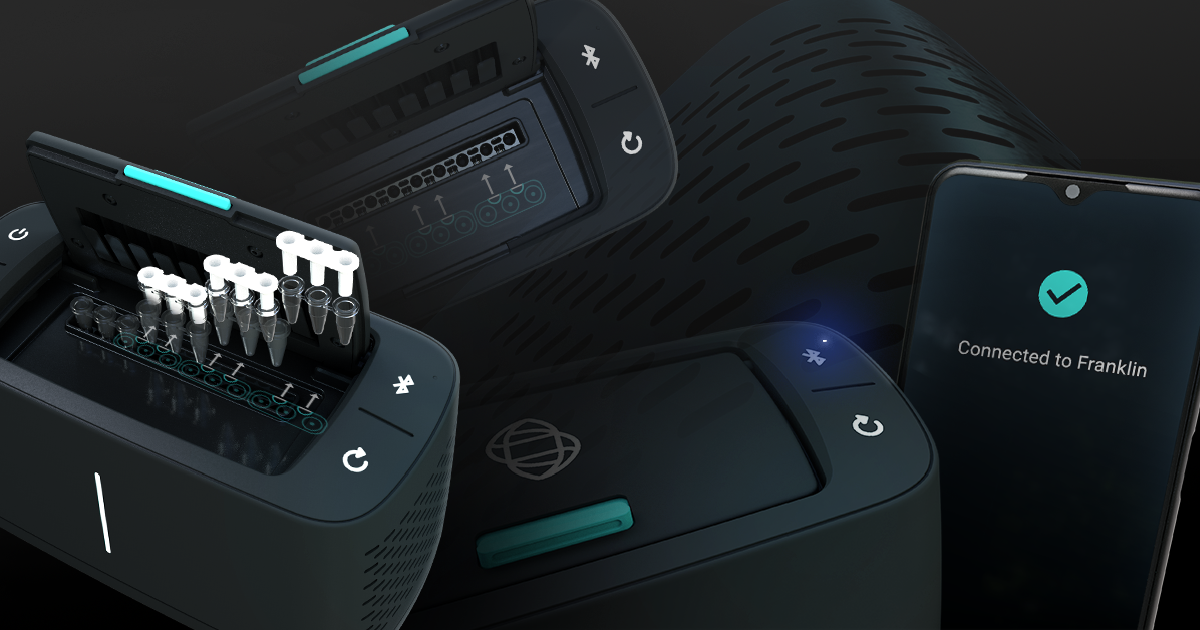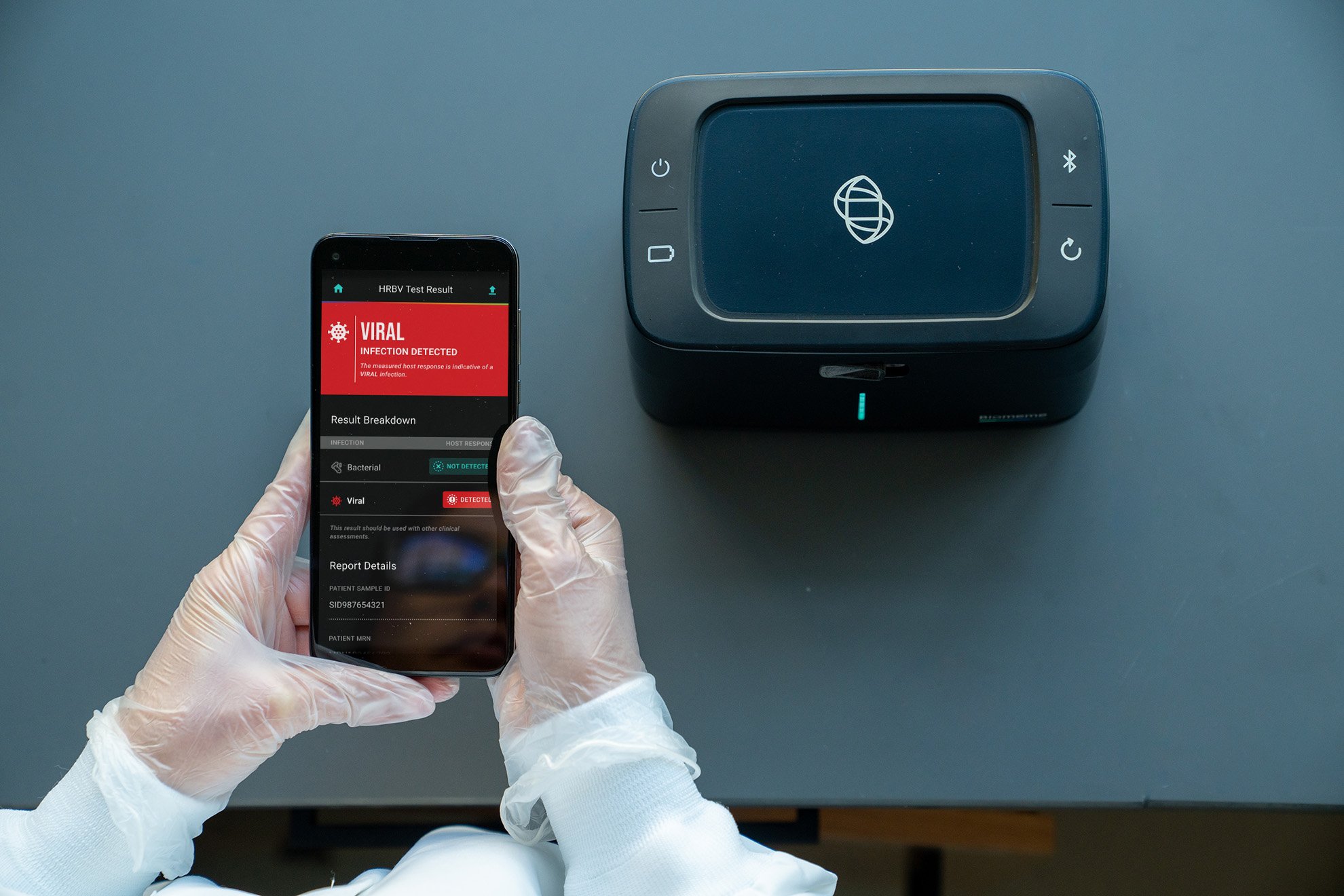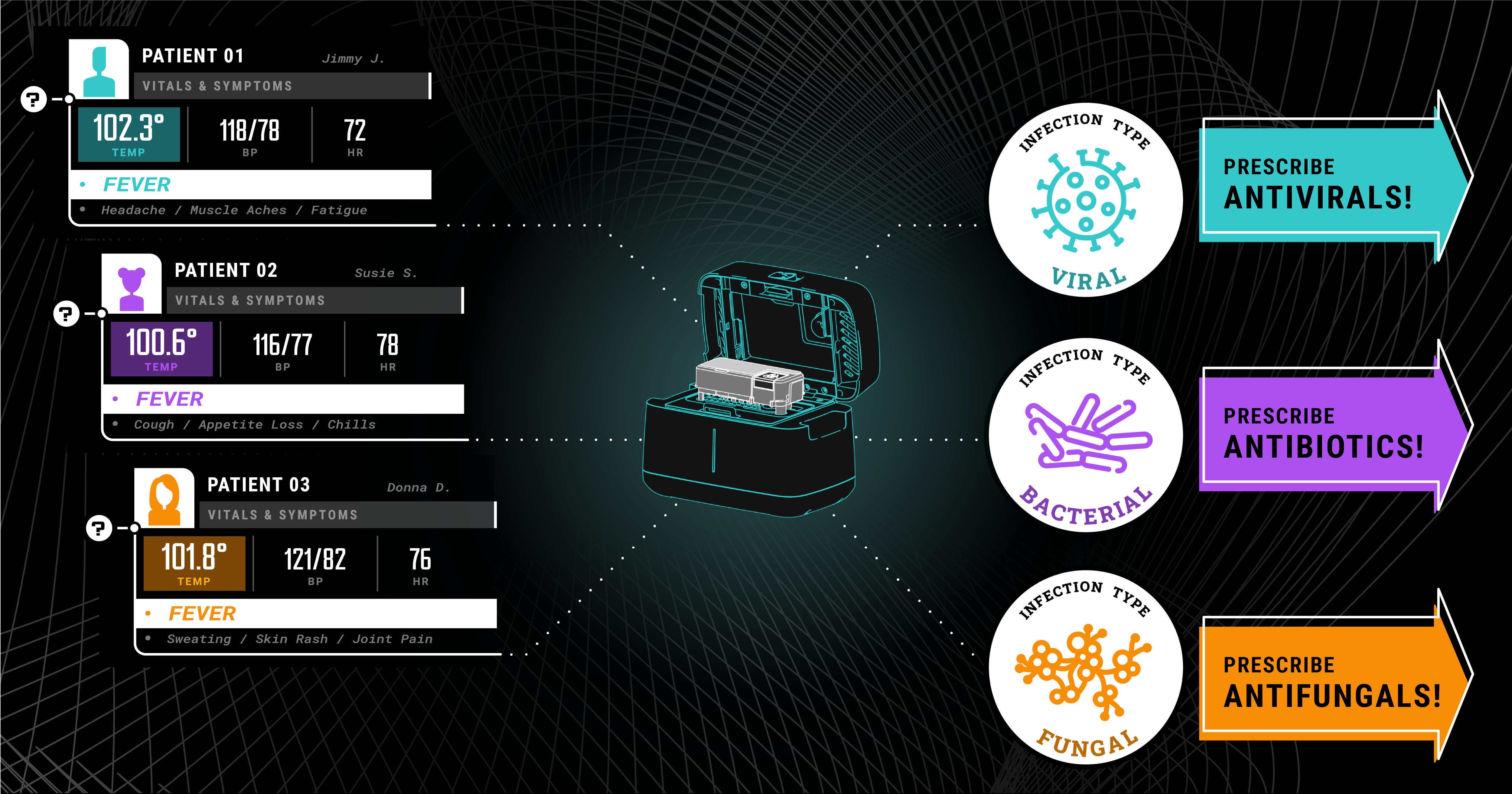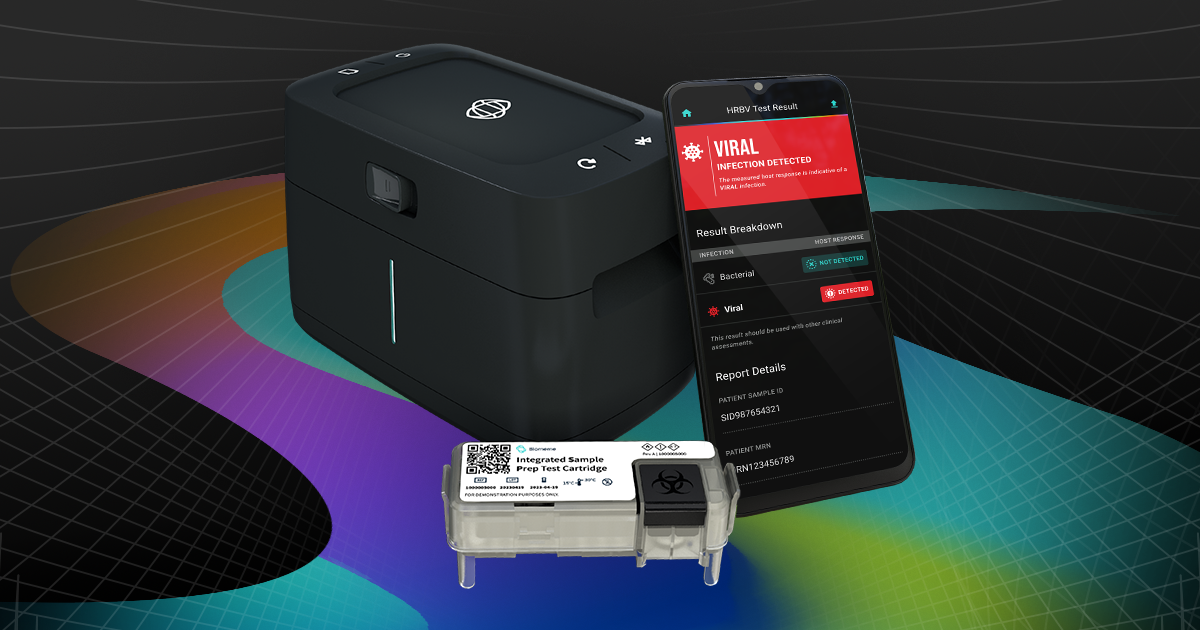
Written By: Biomeme Staff
We have a very clear goal as a company: to improve global health for humans, animals, and the environment. We do this by creating technology that helps clinicians make informed decisions so that they can make quick and accurate diagnoses that lead to better health outcomes and curb the overuse of antibiotics as a blanket response to illness.
Doing this requires collaboration with people all over the world – and it also requires us to be relentlessly curious and dedicated to the pursuit of boundary-pushing science.
Our Franklin thermocycler, both the first-gen and next-gen models, embodies our desire to simplify diagnostic science and create tools that can be used by anyone, anywhere. The first-gen Franklin is field-ready and pandemic-tested. The next-gen Franklin ISP takes that technology to the next level with automated, integrated sample prep that can handle a range of sample types, including powder and blood samples.
We’re extremely proud of our thermocycler and believe it will do great things, so when it came time to give it a name, we chose one that honored a titan in the study of DNA and of viruses, yet someone who does not get the historical credit they deserve: Rosalind Franklin.
The Franklin name also pays homage to Biomeme’s geographical roots; we’re headquartered in Philadelphia, the nation’s first capital which was also home to Benjamin Franklin, the nation’s first scientist.
Rosalind Franklin was a British chemist and expert in X-ray crystallography whose contributions to our understanding of the structure of DNA, RNA, mRNA, and viruses were buried by history until recently. She made two important contributions to the double helix model later attributed to her colleagues and peers, James Watson and Francis Crick, who with Maurice Wilkins, won the Nobel Prize, in 1962. In a 1951 lecture attended by Watson, Franklin presented information crucial to understanding the molecular stability of DNA. The second contribution was an X-ray diffraction image of DNA taken by one of Franklin’s students in 1953 and a report shared with Crick in 1952. Watson and Crick used the parameters defined and refined by Franklin to build their DNA model in 1953. She was never given proper attribution nor nominated for a Nobel Prize. Franklin died of ovarian cancer in 1958 at the age of 37 before she could be recognized for her achievement. It wasn’t until April 2023 that scientists concluded that Franklin was an equal contributor to the discovery process of DNA.
Biomeme is proud to be headquartered in Philadelphia, a city that served as our nation’s capital until 1800 and was home to Benjamin Franklin from 1723 until his death in 1788. Franklin started as a printer but was also a scientist, diplomat, and founder of civic institutions like America’s first subscription library and the first fire station, and later in life, president of the nation’s first abolitionist society.
Philadelphia has made extensive contributions to American history and has been a major influence on American culture, sports, music, and business. It is home to the Liberty Bell, the Franklin Institute, and 18 four-year universities and colleges. It is this vibrant and historical and intellectual environment that Biomeme calls home.
Our goal of improving global health requires tenacity and creativity, and for whatever we’re able to achieve, we will not have gotten there alone. Our work stands on the shoulders of those who came before us, including these two heroes of scientific research.
Get the latest tips from Biomeme shipped right to your inbox

Biomeme pioneers a new era in healthcare with the HR-B/V platform. Our host response molecular testing, based on decades of research and collaboration with leading institutions, empowers healthcare...

It’s no secret that there are major issues in the healthcare industry, including breakdowns in doctor-patient communication, delayed test results, and information gaps. Even after consulting with...

Biomeme has announced its participation in a collaborative fight against antimicrobial resistance and antibiotic misuse, focusing on better diagnostic testing. With the Antibacterial Resistance...
401 North Broad St Suite 222 Philadelphia, PA 19108